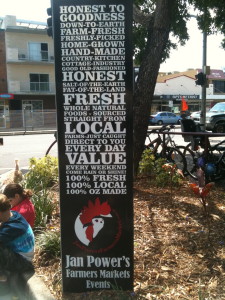Maple Leaf Foods hosted its Sixth Annual Food Safety Symposium last week in Mississauga (that’s in Canada).
 According to The Poultry Site, this year’s event was themed ‘People or Technology’, asking participants to debate which was the best investment to make a step change in food safety globally.
According to The Poultry Site, this year’s event was themed ‘People or Technology’, asking participants to debate which was the best investment to make a step change in food safety globally.
Dr. Randy Huffman, SVP Operations and Chief Food Safety Officer at Maple Leaf said, as many do, that food safety as a non-competitive issue and the company actively shares food safety learnings and promotes sharing of information among industry and government groups.
These are the wrong questions and wrong assumptions.
Yes, people need training – ever seen a peer-reviewed paper evaluating the effectiveness of such training?
Yes, new technology does wonderful things and also creates wonderful new opportunites for new bugs because food is a biological system that will always change.
Yes, food safety should not be a competitive issue and information should be shared.
But that’s not marketing at retail.
Any time I say, food safety should be marketed at retail – E. coli counts in spinach, Salmonella in eggs, Listeria in (Maple Leaf) cold cuts, I get told food safety is a non-competitive issue.
But I’m talking about marketing. People say the reason they buy local, organic, natural, sustainable, dolphin-free and hundreds of other categories is primarily because of safety.
 As a consumer, I want to know which eggs have a history of low Salmonella counts. The technology exists and is being used to access complete restaurant inspection reports with smart phones on those A-B-C rating in New York City.
As a consumer, I want to know which eggs have a history of low Salmonella counts. The technology exists and is being used to access complete restaurant inspection reports with smart phones on those A-B-C rating in New York City.
Food safety may be non-competitive, but implementation is altogether different: some companies are better than others. As a parent doing all the grocery shopping, I want to know what companies are better at microbial food safety. As a PhD in food safety, I want to figure out how best to convey meaningful information.
But have your conferences, feel important, and read barfblog.com daily and bear witness to the outrageous levels of microbial food safety failures.
The kind that make people sick.
